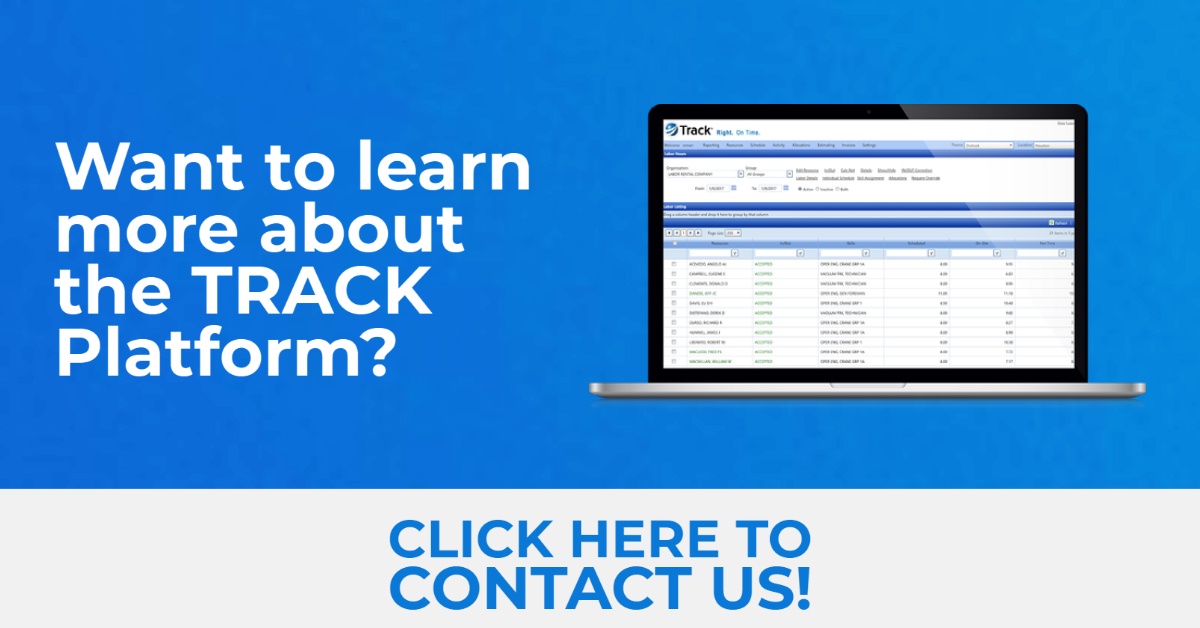Contractor Spend Management: The Error Proof Process to Ensure Invoice Accuracy

MCi’s TRACK Platform digitizes and automates the contractor management process from the time work begins through payment. TRACK integrates with Pre-qualification Solutions, ERP Systems, and Access Control Systems(ACS) to provide immediate availability of cost and schedule compliance information.
- Invoiced work hours exceeded approved hours in the contractor time system (CTS)
- No work hours in the CTS to validate invoice
- CTS work hours approved after invoice already paid
Companies using MCi’s TRACK® Platform have eliminated audit findings like those above. To prevent discrepancies between invoiced hours and CTS hours, TRACK users are effectively employing poka-yoke. Poka-yoke is a Japanese term common in lean manufacturing circles and is defined as the use of any automatic device or method that either makes it impossible for an error to occur or makes the error immediately obvious once it has occurred.
TRACK data is a true accounting of the hours a contractor spends at the work location as provided directly from a company’s access control system (ACS). The contractor and company have agreed to use badge-in/badge-out events as the single method for the measurement of time on-site. If workers are off-site in remote locations, companies leverage our mobile technology to capture activity.
Contractors and owners no longer have to estimate time and manually prepare timesheets. Companies no longer need to enter time data into a separate CTS. Instead, there is a single view of contractor hours in TRACK. This single view not only eliminates time-intensive, error-prone manual timekeeping but also effectively eliminates invoice time discrepancies. Owners and contractors have the same view of contract labor and equipment time daily and sometimes even on a shift-by-shift basis.
Contract Visibility and Consistent Application
Another common audit finding is discovering that invoices are routinely paid even though they do not comply with Contract Rates, Terms, and Conditions. Applying the correct, contractually allowed multipliers to hours worked sounds straightforward. The challenge is that each invoice likely contains dozens of labor classifications, shift schedules, and pay rates.
Knowing and consistently applying all of these variables is complex. Yet for many companies, contractor billing and company invoice approval processes are manual. First, the contractor’s billing department is expected to apply all of the Rates, Terms, and Conditions correctly as the invoice is prepared. Then the company’s approver needs to evaluate the invoice for accuracy keeping all of those same conditions in mind.
Using this traditional, manual approach, the contractor may not present an invoice to the company for days or more often weeks. By then, the company is effectively approving payments for goods and services in the dark; as approvers cannot remember details from days or weeks in the past. Consider that some companies report approving a million or more invoices every year and ensuring invoicing accuracy becomes almost humanly impossible. It is no surprise that lack of compliance with financial controls is often a repeat audit finding.
Consistent Payment of Accurate Invoices
For TRACK users, the secret to capturing these cost savings and maintaining compliance with financial controls processes is to automate the application of contract Rates, Terms, and Conditions to work hours. This automation reduces the probability, perhaps to zero, of human errors such as:
- Manual Data Entry
- Allowing charges for hours or partial hours spent on activities not contractually billable
- Failing to apply the lowest rate for equipment –hourly, daily, weekly, or monthly
- Double billing for the same worker or piece of equipment
Conclusion
Since 1989, MCi has a proven track record of integrating with companies’ existing ACS and ERP systems to automate dependable and consistent processes to ensure that contractors are paid exactly what they have earned.




